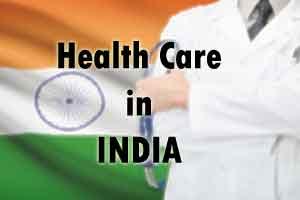- Home
- Medical news & Guidelines
- Anesthesiology
- Cardiology and CTVS
- Critical Care
- Dentistry
- Dermatology
- Diabetes and Endocrinology
- ENT
- Gastroenterology
- Medicine
- Nephrology
- Neurology
- Obstretics-Gynaecology
- Oncology
- Ophthalmology
- Orthopaedics
- Pediatrics-Neonatology
- Psychiatry
- Pulmonology
- Radiology
- Surgery
- Urology
- Laboratory Medicine
- Diet
- Nursing
- Paramedical
- Physiotherapy
- Health news
- Fact Check
- Bone Health Fact Check
- Brain Health Fact Check
- Cancer Related Fact Check
- Child Care Fact Check
- Dental and oral health fact check
- Diabetes and metabolic health fact check
- Diet and Nutrition Fact Check
- Eye and ENT Care Fact Check
- Fitness fact check
- Gut health fact check
- Heart health fact check
- Kidney health fact check
- Medical education fact check
- Men's health fact check
- Respiratory fact check
- Skin and hair care fact check
- Vaccine and Immunization fact check
- Women's health fact check
- AYUSH
- State News
- Andaman and Nicobar Islands
- Andhra Pradesh
- Arunachal Pradesh
- Assam
- Bihar
- Chandigarh
- Chattisgarh
- Dadra and Nagar Haveli
- Daman and Diu
- Delhi
- Goa
- Gujarat
- Haryana
- Himachal Pradesh
- Jammu & Kashmir
- Jharkhand
- Karnataka
- Kerala
- Ladakh
- Lakshadweep
- Madhya Pradesh
- Maharashtra
- Manipur
- Meghalaya
- Mizoram
- Nagaland
- Odisha
- Puducherry
- Punjab
- Rajasthan
- Sikkim
- Tamil Nadu
- Telangana
- Tripura
- Uttar Pradesh
- Uttrakhand
- West Bengal
- Medical Education
- Industry
Unfortunate: India 145th among 195 countries in healthcare access, quality

New Delhi: India ranks 145th among 195 countries in terms of quality and accessibility of healthcare, behind its neighbours like China, Bangladesh, Sri Lanka and Bhutan, according to a Lancet study.
The Global Burden of Disease study, however, mentioned that India has seen improvements in healthcare access and quality since 1990.
In 2016, Indias healthcare access and quality scored at 41.2 (up from 24.7 in 1990).
"Although Indias improvements on the (health care access and quality) HAQ index hastened from 2000 to 2016, the gap between the countrys highest and lowest scores widened (23�4-point difference in 1990, and 30�8-point difference in 2016)," the study stated.
It said that Goa and Kerala had the highest scores in 2016, each exceeding 60 points, whereas Assam and Uttar Pradesh had the lowest, each below 40.
India lags behind China (48), Sri Lanka (71), Bangladesh ( 133) and Bhutan (134) while its health index was better than Nepal (149), Pakistan (154) and Afghanistan (191).
The five countries with the highest levels of healthcare access and quality in 2016 were Iceland (97.1 points), Norway (96.6), the Netherlands (96.1), Luxembourg (96.0), and Finland and Australia (each with 95.9).
The countries with the lowest scores were the Central African Republic (18.6), Somalia (19.0), Guinea-Bissau (23.4), Chad (25.4), and Afghanistan (25.9).
According to the study, India performed poorly in tackling cases of tuberculosis, rheumatic heart diseases, Ischaemic heart diseases, stroke, testicular cancer, colon cancer and chronic kidney disease among others.
Subnational inequalities were particularly pronounced in China and India, although high-income countries, including England and the US, also saw considerable local gaps in performance, it said.
"The study stated large disparities in subnational levels of personal healthcare access and quality emerged for several countries, especially China and India.
"These results emphasize the urgent need to improve both access to and quality of healthcare across service areas and for all populations; otherwise, health systems could face widening gaps between the health services they provide and the disease burden experienced by local communities," it said.
The study used an index to measure the quality and accessibility of healthcare, based on 32 causes of death which should be preventable with effective medical care. Each of the 195 countries and territories assessed were given a score between 0-100.
For the first time, the study also analyzed healthcare access and quality between regions within seven countries: Brazil, China, England, India, Japan, Mexico, and the US.
The study found that China and India had the widest disparities in healthcare access and quality with 43.5 and 30.8 point differences, respectively.
Japan had the narrowest differences with 4.8 points.
In 2016, the global average healthcare access and quality score was 54.4, increasing from 42.4 points in 2000.
Disparities between countries remained similar in 2016 and 2000, with a 78.5 point gap between the best and worst performing countries in 2016 (18.6 in the Central African Republic and 97.1 in Iceland), compared with 79.3 points in 2000 (13.5 in Somalia and 92.8 in Iceland).
Medical Dialogues Bureau consists of a team of passionate medical/scientific writers, led by doctors and healthcare researchers. Our team efforts to bring you updated and timely news about the important happenings of the medical and healthcare sector. Our editorial team can be reached at editorial@medicaldialogues.in.
Next Story


